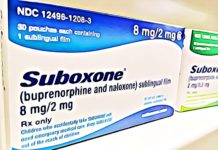Binge drinking is part of life. However, some people take their drinking habits to the extreme and develop an addiction. One of which is alcoholism, or the addiction to alcoholic drinks. The National Institute on Alcohol Abuse and Alcoholism states that 25.8 percent of people in the US, aged 18 and older, engaged in binge drinking in 2019.
But despite having an addiction to alcohol, some people manage to continue with their usual routines and continue with life. Termed as high-functioning alcoholics, these people can still perform their jobs, maintain their hygiene, take care of their children, pay their bills, and participate in social activities. But there are more things to learn about them, and here are some examples.
What Does It Mean to be a High Functioning Alcoholic?
High-functioning alcoholics are the people who do not show their addiction to alcohol on the outside. They can balance their lives, even though they have an addiction. While it is not an excuse to continue with the habit, it is better to know how they cope with their problem.
If you are concerned that you are among the high-functioning alcoholics, it is best to seek help to get rid of the addiction. It is never too late to seek help and stop the trend of consuming alcohol. An intervention may also be helpful for you to get the professional service that you need.
Signs of a High Functioning Alcoholic
High-functioning alcoholics are not easy to identify since they can still be involved with their lives despite the addiction. Here are some of the signs to help you determine an alcoholic with high-functioning addiction.
- Constant Need for Alcohol
High-functioning alcoholics need alcohol to function and to get through the day. They drink alcohol to relieve their stress and even have a high tolerance to alcohol. If you cannot live a day without a drink, it is time to seek help.
- Time Management
High-functioning alcoholics do not have time problems, which is not a big deal. They can still manage to go through their days without any problem.
- Physical Appearance
High-functioning alcoholics do not seem ill. Their appearance can be deceiving for people who do not know about their addiction. Because of this, you might not notice their problems until they come to the point that they cannot manage anymore.
What is Functional Tolerance?
Functional tolerance is a condition wherein the person has developed a tolerance to alcohol, but not really to the point of being physically dependent. The individual does not have an issue with the substance, but it does create some internal problems. When these conditions are met, the person is susceptible to high-functioning alcohol addiction.
For example, when you take medications for pain or anxiety, you will eventually become tolerant over time. The same thing happens to alcoholics. The higher tolerance means that you will need to drink more to experience the same effect. But alcohol is not a legal drug, which can have harmful consequences.

How to Handle Functional Tolerance?
Functional tolerance is not a big issue. It only means that you are consuming alcohol more than anticipated. The good thing is that you can still stop the cycle and manage your social life without any problem. However, you will need to understand that your tolerance for alcohol may continue to increase if you continue consuming it. To correct the problem, you should adopt some strategies.
- Practice Abstinence
The best way to handle functional tolerance is to stop drinking alcohol altogether. However, it is not easy to do, especially if you are in your addiction. But it is still worth trying.
- Practice Responsible Drinking
Another way to deal with your functional tolerance is to practice responsible drinking. It is about drinking in moderation, not really about cutting off the drinks. Alcohol is something that you should enjoy in a safe and accountable manner, just like with other things that can harm you.
- Identify the Cause of Functional Tolerance
It may be challenging to identify the cause of functional tolerance. The problem is that you are already addicted to alcohol, so you will likely not notice the subtle symptoms until it is too late.
One of the causes of functional tolerance is that your body is used to the presence of alcohol. It explains why you may be in a high tolerance for alcohol, but you do not have a problem with it.
- Get Help
In addition, there is no real way to escape the cycle of using alcohol. It is just that you want to escape the addiction, but you do not want to stop drinking. Alcoholism is a progressive disease, and it is hard to stop it. You will need professional help to stop the cycle of abusing alcohol.
The Dangers of Being a High-Functioning Alcoholic
High-functioning alcoholics may not really have a problem with drinking, but it does not mean that they are immune to the dangers that are involved with the addiction. High-functioning alcoholics, just like regular ones, are still at risk of developing chronic diseases, such as liver damage and cancer.
They can still develop liver damage from their regular drinking. The liver is the body organ that has the capacity to break down alcohol in the body, but it will eventually get damaged if you continue drinking alcohol.
It is also possible for high-functioning alcoholics to experience alcohol withdrawal. Just like regular alcoholics, they can develop withdrawal even if they are not dependent on alcohol. The symptoms can be mild to severe, depending on how long you have been drinking and how much you have consumed.
A person who is addicted to alcohol is also at risk of developing alcoholism and various mental and physical problems. Examples of the problems are heart problems, weight gain, sleeping issues, and even stomach problems.
Best Ways to Deal With Alcoholism
Having a high-functioning alcoholic addiction is not really a difficult problem. It is just a matter of how you deal with your addiction. Here are some ways to manage and possibly stop the addiction.
- Understand that You Are Addicted
If you have a high-functioning alcohol addiction, it does not mean that you are not addicted. It just means that you need to figure out the root of the problem.
- Seek Professional Help
Help is always good. But when it comes to alcoholism, it is a must. It is good to seek help from your friends or family, but it is better to seek help from experts.
- Make a Plan for Your Future
Having a plan for the future is essential. You need to assess what you want to do in the future if you stop drinking. You can still plan for the future, even if you are a high-functioning alcoholic.
- Reduce Your Drinking
It is never easy to stop drinking. But if you want to get out of your addiction, you need to reduce your drinking. It does not mean that you will stop drinking altogether, but you will remember that you are still trying to stop drinking.
- Avoid the Triggers
Some triggers may tempt you to drink. Some of the triggers include social gatherings, stress, and boredom. Being able to avoid these triggers can help you to stop drinking alcohol.
- Record Your Progress
It is helpful to record your progress, especially if you are a high-functioning alcoholic. You can see how much you are drinking or even how long you can go without drinking.
Conclusion
If you have a high-functioning alcoholic addiction, you do not need to be ashamed. You can still stop the addiction and lead a healthy life. There are some symptoms and signs that can help you stop drinking, and you can also seek help from experts. It is also essential to understand that the condition is not an issue, primarily if not dependent on alcohol. However, if you are in danger of developing liver problems, alcohol withdrawal, or other alcoholism problems, it is time to take responsibility for your actions and seek help.
Sources:
















